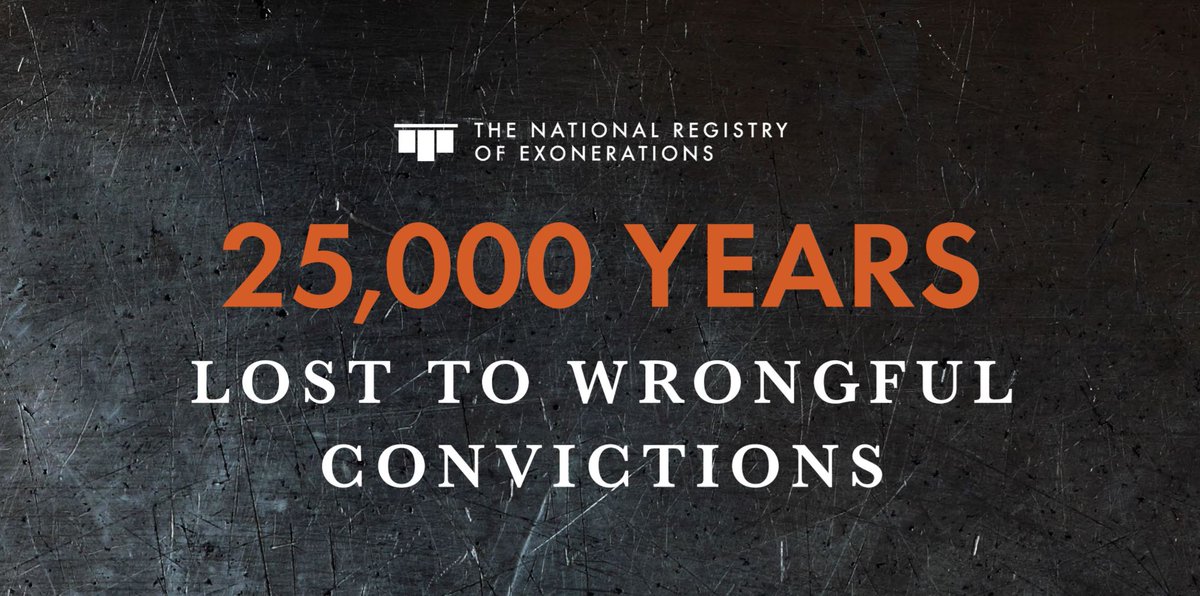

By Sydney Kaplan and Koda Slingluff
“Freedom” is a word that, for many, is closely tied with the United States. But for others, the United States’ justice system is precisely what stripped that freedom away.
And now, according to the National Registry of Exonerations, Americans have sat in jail and prison unjustly for a collective total of more than 25,000 years.
These 25,000 years are attributed to people who were wrongfully convicted, serving in prisons for crimes they did not commit. And though the government has funded $2.9 billion in an attempt to compensate victims of wrongful conviction, more than half have yet to see a penny of that money.
The 25,000 year milestone was reported June 2021, just three years after the collective years of wrongfully served years surpassed 20,000 years, with 2,795 known exonerated victims within the last 30 years.
The National Registry of Exonerations didn’t skirt the numbers, either.
Those who were released in groups are not calculated in this number and the hours only account for time spent incarcerated before being convicted, not for pre-trial jail time. Additionally, the vast majority of false convictions are still uncorrected.
“Put simply, while 25,000 years is a staggering number, it is a significant undercount of the true losses these falsely convicted men and women suffered,” the registry stated. 
The demographics of exonerees tells an alarming story as well.
While white exonerees spent an average of 7.5 years in prison, Black exonerees on average spent 10.4 years in prison. Further, while Black people in the U.S. only account for 13 percent of the population, they account for 49 percent of exonerees and 58 percent of the collective years served by exonerees.
The government has spent nearly $3 billion in compensating exonerees, but so far, only 45 percent have received any form of compensation; the National Registry of Exonerations reports this number only accounts to 57 percent of years lost by exonerees.
Professor Jeffery Gutman from George Washington University Law School studies the compensation of these exonerated individuals more in depth. He identified and studied two types of compensation: civil lawsuits for damages and statutory compensation for wrongful imprisonment.
The former of that is applicable for deprivation of civil rights and executive misconduct. The latter is offered in 36 states and the District of Columbia. The amount paid in compensation combines these.
Unfortunately, monetary compensation does not nearly account for the emotional turmoil and grief years in prison can create. Olin “Peter” Coones, after being falsely accused of murder, spent 10 years in prison before being exonerated.
When he was finally released, he died within only a few months. His trauma “broke his body,” reports the National Registry of Exonerations.
It is important to note that compensation, though never enough, can come in more forms than monetary. An example of this is Ashley and Albert Debelbot, who were falsely convicted of murdering their own daughter.
In addition to serving time, the Debelbots were forced to live with the knowledge that their daughter’s murderer was living free. Monetary compensation cannot account for the pain felt by the Debelbots in those years.
When Ashley and Albert Debelbot were exonerated for their part in the murder of their daughter on April 13, 2021, the district attorney on the case apologized to them. This did not erase the emotional turmoil faced by the Debelbots, but it seemed to be appreciated.
“I thought I would never hear that being said to me, ever.” Ashley Debelbot said after she was exonerated, “Once you’ve been incarcerated, the word ‘Sorry’ never comes up, at all.”
These 25,000 years represent an uncanny impact on innocent Americans’ lives, especially Black Americans.
The registry describes this hauntingly, saying, “To exonerees who served sentences of a year or two for crimes they did not commit, it must have felt like an eternity. For those who served decades, the suffering is incomprehensible.”
 Koda is a junior at UC Berkeley, majoring in Philosophy and minoring in Rhetoric. He is from Ventura, CA.
Koda is a junior at UC Berkeley, majoring in Philosophy and minoring in Rhetoric. He is from Ventura, CA.
Sydney Kaplan is an incoming third-year at Santa Clara University. As a Political Science major with Journalism & Economics minors, her biggest passion is exploring the various intersections between her fields of study. Currently, she is most interested in comparative media policy and criminal justice reform.
To sign up for our new newsletter – Everyday Injustice – https://tinyurl.com/yyultcf9
Support our work – to become a sustaining at $5 – $10- $25 per month hit the link: